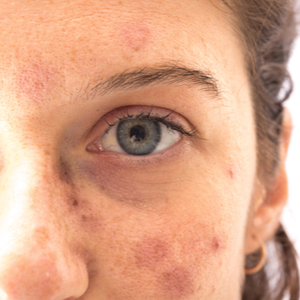Quick Links

Allergies can be frustrating and cause itching, but most are easily avoidable. Some people develop a condition known as sun allergy, where they become allergic to the sun. This condition is not the type of allergy that would cause the throat to swell, but it can cause irritability. This can be an especially frustrating condition to deal with. It happens when the immune system reacts to sunlight. The immune system will treat sun-altered skin as a foreign body which leads to a reaction.
Types of Sun Allergies
There are various types of sun allergies:
Actinic Prurigo
This sun allergy is inherited, and the symptoms often begin in childhood. It is most common in Native American populations but can affect all races.
Photoallergic Reaction
This allergy occurs when a chemical that is applied to the skin reacts with sunlight. Medications, sunscreens, cosmetics, and fragrances can cause a reaction. Lemons, limes, and mangos are the main food ones. Symptoms do not usually appear for 2 to 3 days.
Polymorphyic Light Eruption
This form of sun allergy is the most common. It affects women more than men and usually starts in the teens or twenties. Symptoms usually appear a few hours after sun exposure.
Solar Urticaria
This type of sun allergy is rare. It affects mostly young women, and hives will appear after a few minutes of exposure to the sun. Symptoms of this type of sun allergy can be mild or severe.
Symptoms of Sun Allergy
Those with a sun allergy will have a variety of symptoms like hives, irritated skin, itchy skin, red bumps, or blisters. The symptoms change based on the type of sun allergy that you have. Sun allergy mostly affects people in the spring and early summer and when on winter vacations in sunny climates. With continued exposure, the likelihood of allergy diminishes.
Treatment for Sun Allergy
At-home treatments include avoiding lengthy sun exposure and using daily sunscreen. Sunscreen should be at least SPF 50 or greater and resistant to water. Other methods of treatment include keeping the skin moisturized.
Contact Our Team at Trillium Creek
Sun allergy symptoms include a rash or reaction due to sensitivity or intolerance to the sun. You must take extra special precautions with sun care and skin protection.
To get further treatment, meet with our providers at Trillium Creek so they can examine your skin, and symptoms and find the best method of treatment for you. Call us now for advice on how to protect your child and yourself from the sun.



